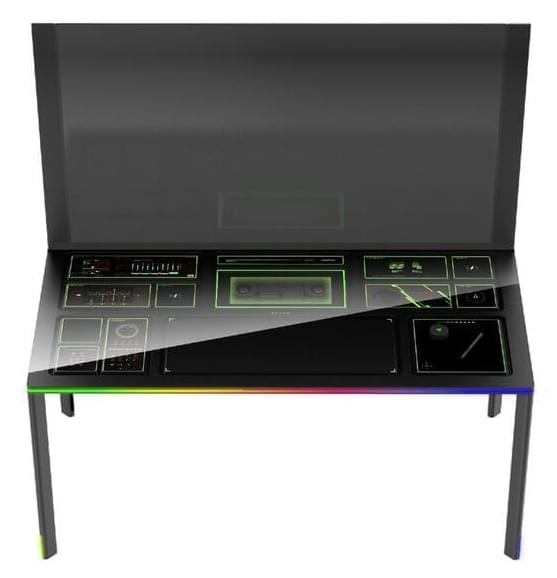
CES wouldn’t be the Consumer Electronics Show without Razer bringing at least one prototype product to the event. This year was no different with the company using the annual trade show to unveil Project Sophia, a concept modular gaming desk. In its current iteration, the table includes room for 13 separate modules. These can be used to add components like touchscreen hotkey panels, external capture cards and audio mixers to Project Sophia, thereby allowing you to modify the station to your needs. Razer claims it’s possible to reconfigure the table “in seconds.”
The computer that powers everything is housed in a chassis that magnetically snaps underneath Project Sofia’s glass tabletop surface. Razer says it features the latest components from Intel and NVIDIA, and you can detach the case at any point to install new upgrades. Naturally, this being a Razer product, you’ll find plenty of RGB lighting, all of which you can control through the company’s Chroma software. But arguably the most eye-catching aspect of Project Sophia is the 65-inch OLED display Razer has built into the station. The company says it will also offer a model with a 77-inch display – but we’ll note here Project Sophia may never make it to market.
Looking at the rest of the concept, Razer appears to have paid less attention to ergonomics. Judging from the renders the company shared, you can’t adjust the height of Project Sophia to make it a standing desk or to better accommodate the position of a chair. And speaking of chairs, the company also unveiled a “Pro HyperSense” version of its $399 Enki gaming chair. Razer partnered with D-Box to add haptics to the chair. It will support 2,200 games, movies and TV series, including releases from publishers like Ubisoft and Microsoft. Oh, and it too will come with RGB lighting.


















